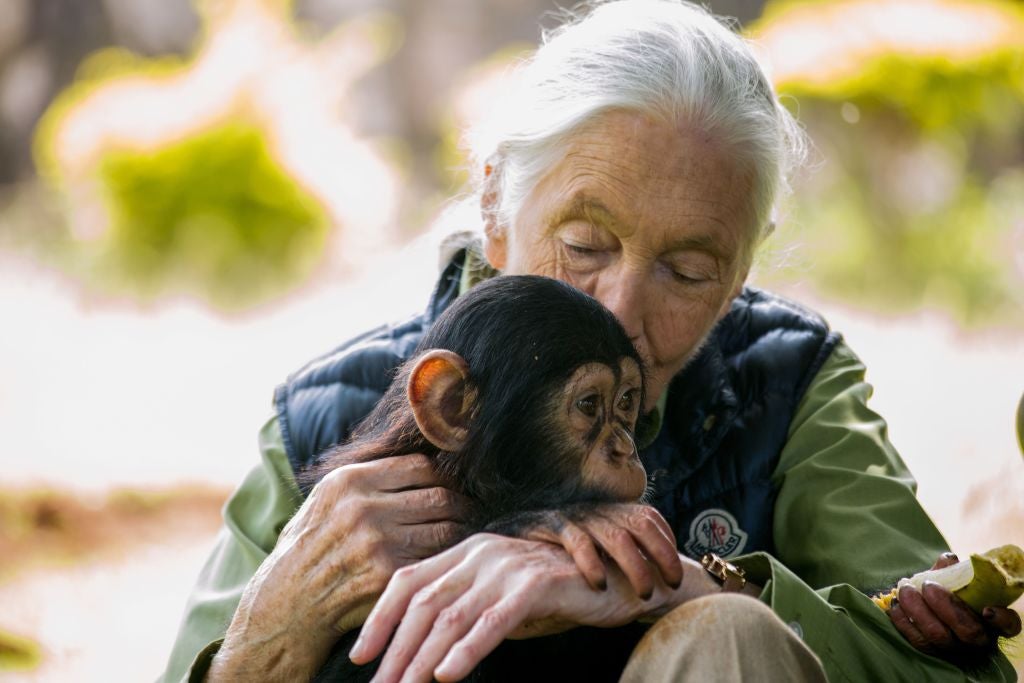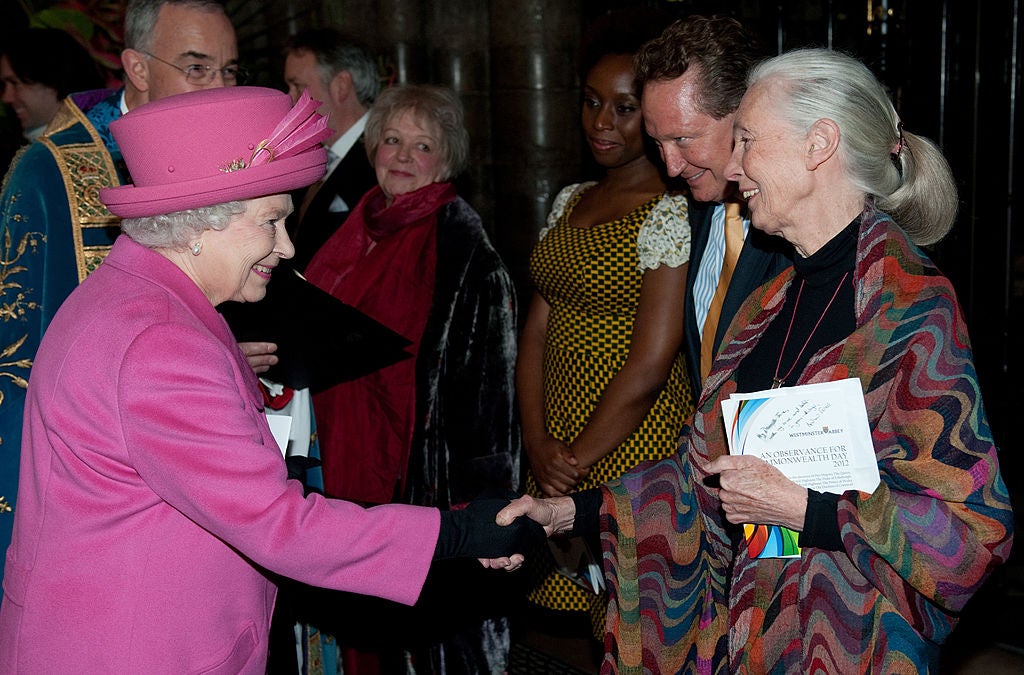Please support me sincerely
Independent journalism
Our mission is to provide unbiased, fact-based reporting that holds those in power accountable and exposes the truth.
Every donation counts, whether it’s $5 or $50.
Help us deliver journalism without agenda.
Dr. Jane Goodall, who turned 90 in April, hasn’t moved an inch.
A renowned zoologist, primatologist, anthropologist, and considered the world’s foremost chimpanzee expert, she still travels nearly every day of the year to promote the Jane Goodall Institute and raise money for conservation efforts.
Born in Hampstead, North London, Goodall stays with her sister when visiting the UK. When not, she tours the world, giving speeches and traveling from hotel to hotel.
In an interview last year after turning 89, Goodall said the world wasted an opportunity to reopen to nature and protect the environment during the pandemic. But she still hopes that the younger generation, which makes up a large part of her supporters, will change things while they still have time.

Goodall first traveled to Africa in 1957, where she stayed on a friend’s farm. She had already developed a love for animals of all kinds, having read Dr. Doolittle, a novel about a man who could talk to animals, as a child, and having befriended a stuffed chimpanzee given to her by her parents.
Her work communicating with chimpanzees established her reputation in the 1960s, and her tenacity in the largely male-dominated world of primatology set an example for young women to become scientists. She used her fame to open the Jane Goodall Institute in 1977, and also to support nature research and conservation in Africa.
Goodall’s most famous observation was that chimpanzees communicate with each other in very human ways, including kissing, hugging, tickling, fighting, and even using primitive tools to find food.

Goodall thrilled the crowd at a fundraiser at the Tampa Aquarium by saying her name as a chimpanzee for about six seconds. When asked whether she thought advances in AI like ChatGPT would ultimately help humans communicate and understand animals like Dr. Doolittle, she hesitated.
“There are people using AI to decipher animal communication,” Goodall said. “I don’t think it’s smart to learn how to translate animal communication into human speech, because all our nonverbal language is similar anyway: hugs, kisses.”
Goodall admitted at the event that evening that she spends a lot of time pondering what happens after she dies, something she explores in her latest book with Douglas Abrams, “The Book of Hope: A Survival Guide for Trial Times.” She said she believes we retain consciousness after we die.
“I can’t think of a greater adventure than that which goes beyond our mortal lives,” she said.
But given Goodall’s energy and enthusiasm at age 90, it’s likely she’ll have many more birthdays to pursue her passions.
The Independent reports: Climate100 ListWe’re hosting an online event in New York in September. Candidate nominations are in progress. Donate to Hidden Climate Heroes by August 16th.






